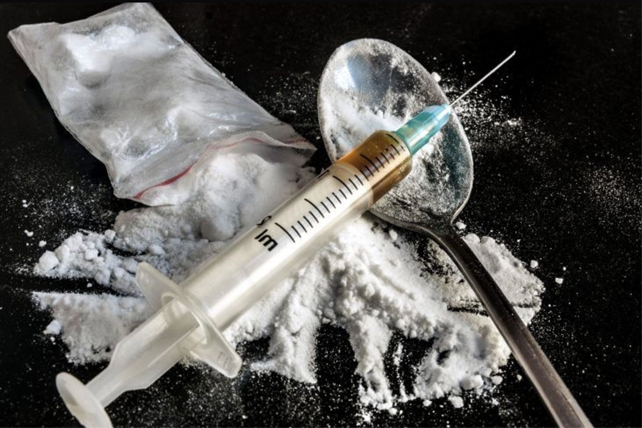A new report has called on the Indian government to decriminalise drug use, primarily as a response to an ongoing health crisis among people who use drugs in the state of Punjab.
The report – From Addict to Convict: The Working of the NDPS Act in Punjab – was produced by the Vidhi Centre for Legal Policy, an independent Indian think tank which undertakes research to inform government law-making. The NDPS Act (the Narcotic Drugs and Psychotropic Substances Act) is India’s central piece of drug legislation which prohibits the use, possession, and sale of illegal drugs.
The report recommends that people who use drugs problematically should be encouraged to seek treatment, rather than face criminalisation and imprisonment, and points to the northwest state of Punjab to highlight the failures of the current approach.
Punjab has seen increasingly widespread opioid use over the past decade. Several factors have contributed to this rise, particularly the state’s proximity to heroin trafficking routes, as well as high unemployment and broader socioeconomic problems. Without effective public health measures in place, this widespread opioid dependency in turn creates further socioeconomic woes for the people of Punjab, fuelling a deadly cycle of social marginalisation.
Alongside the consequences of the health and economic crises, vulnerable groups are facing further marginalisation due to the mass criminalisation of people for drug possession. As TalkingDrugs has previously reported, almost half of Punjab’s 26,000 prison inmates are locked up for violating the NDPS Act. In 2015, over 30 per cent of people in India incarcerated under the NDPS Act were in Punjab, despite the state accounting for less than three per cent of the national population.
The Vidhi Centre’s report notes that the vast majority of people brought in front of the state’s Special Court under the NDPS Act were found in possession of an “intermediate quantity” of drugs – a term which covers an enormous range; between 5g and 250g of heroin, or between 25g and 2.5kg of opium.
“Most intermediate quantity cases,” the report describes, “are either sentenced to 1–3 months’ imprisonment or to time already served as an under-trial. These cases are thus compelled to go through the criminal justice system without any recourse to treatment and de-addiction.”
This approach does little to help people with their problematic drug use, forces vulnerable nonviolent offenders – mostly young, poor men – into overcrowded prisons, and burdens the state with increased expenditure.
A new approach, the report insists, is imperative: “Since intermediate quantity cases largely involve addiction, they should be given the benefit of judicial and prosecutorial discretion […]. The law should allow addicts to be diverted to rehabilitation through the non-punitive sections of the NDPS Act, regardless of whether they have been found with small or intermediate quantity of drugs.”
The report argues that diverting people who use drugs away from the criminal justice system is the most important change that must take place in Indian drug policy, but that it is not always necessary for people to be diverted to treatment.
“India should remove criminal penalties for drug use and instead treat it as an administrative offence. The police or judicial authorities should refer addicts to an administrative body. This body, consisting of legal, health and social work professionals, can then decide to penalise the user with a warning, fine, or community service, or encourage him to seek treatment.”
Decriminalisation of personal drug possession exists in some form in over a dozen countries. Since Portugal decriminalised the personal possession and use of all drugs in 2001, drug use has declined among young people, recent drug use has declined among the general population, there has been a sharp drop in HIV diagnoses attributed to drug injecting, and drug-related deaths have decreased significantly to one of the lowest rates in the EU.
However, decriminalisation alone is not enough – evidence indicates that the approach can be most effective if combined with state investment into long-term treatment and harm reduction services.
“An effective treatment strategy should be developed by consulting experts, partner agencies and users; and allocating adequate resources”, the report notes.
By decriminalising drug possession and thereby diverting thousands of people away from expensive incarceration, the state may indeed find that it has the resources for undertaking such an endeavour.
Read the full report: From Addict to Convict: The Working of the NDPS Act in Punjab


